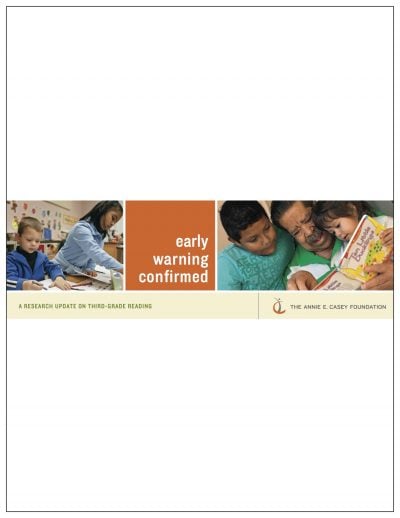Poor KIds=Poor Progress
74% of fourth-grade students scoring below the 25th percentile on the National Assessment of Educational Progress were from low-income families.

In May 2010, the Annie E. Casey Foundation published a KIDS COUNT special report, Early Warning: Why Reading by the End of Third Grade Matters, to launch the national Campaign for Grade-Level Reading. Early Warning summarized the early reading research basis for focusing on grade-level reading proficiency as an essential step toward increasing the number of children from low-income families who succeed academically, graduate from high school on time and do well in life and the workforce. The report provided data on the low level of reading skills nationwide, especially among children from low-income families, and highlighted the urgency of getting more children to read proficiently as a way to break the cycle of intergenerational poverty while boosting this country’s social equality, economic competitiveness and national security.
A follow up to 2010's Early Warning, this report underscores the urgency of ensuring that children develop proficient reading skills by the end of third grade, especially those living in poverty or in impoverished communities. This early reading research report supports the link between reading deficiencies and broader social consequences, including how living in poor households and high-poverty neighborhoods contribute to racial disparities in literacy skills in America and how low achievement in reading impacts an individual’s future earning potential.
Children with the lowest reading scores account for 33% of all students, yet they account for 63% of all children who do not graduate from high school.
We hope you'll find value in this report. We’d love to get a little information from you, which we'll use to notify you about relevant new resources.